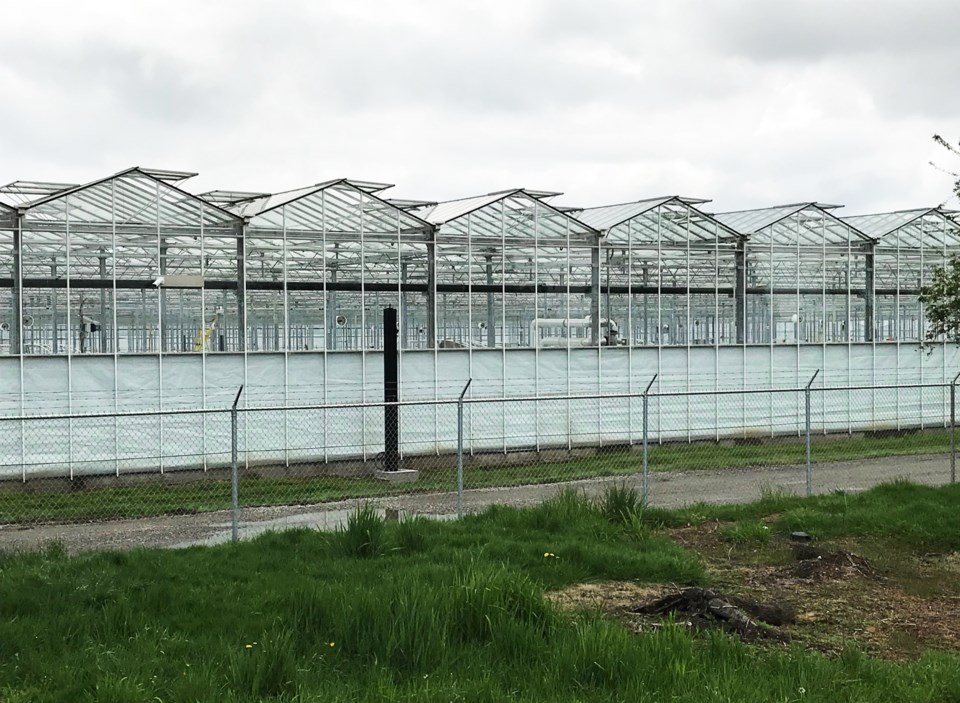A former large-scale cannabis greenhouse in East Ladner is back in business selling vegetables and looking to house its workforce.
Delta council last week agreed to support an application by a greenhouse operation at 10250 Hornby Dr., owned by a numbered company and operated by Darvonda Nurseries, for temporary migrant farm worker housing.
The application to house on-site up to 72 migrant farm workers will be forwarded to the Agricultural Land Commission where final approval is required.
The workers would be hired through the Seasonal Agricultural Worker Program.
The greenhouse is currently used to grow bedding plants and vegetables.
It contains four large greenhouses, two irrigation ponds, a farmhouse, a home plate for migrant farm worker housing and accessory farm buildings.
City staff have confirmed that the proposal meets Delta's zoning bylaw regulations and that the proposed number of workers can be accommodated on-site in the two pre-manufactured housing units.
An amenity space is also proposed to the west of the housing units and an accessible soccer pitch exists to the east.
Given the reduced farm plate area tied to the current application, staff do not anticipate any impacts to the long-term agricultural viability of the lands resulting from the proposal, a report to council notes.
Despite an existing migrant farm worker housing covenant on title that permits up to 106 migrant farm workers, there are currently no migrant farm worker dwelling units on-site as the previous farm worker housing was removed by the previous owner.
The greenhouse for a time was owned and operated by Ontario-based Canopy Growth Corp., a large-scale cannabis producer with global interests.
In 2020, as part of a series of cost-cutting moves, Canopy abruptly shut down the 1.7-million-square-foot facility, which was set to become one of the world’s largest indoor cannabis grow operations.
About 500 jobs were suddenly lost when Canopy shuttered its operations in B.C.
Canopy Growth had earlier spent millions to retrofit the greenhouses and later many millions more to acquire the remaining interest that it didn’t own in a joint venture called BC Tweed.
A large fire heavily damaged the vacant facility later in 2020.
Canopy Growth early last year confirmed in a regulatory filing with the U.S. Securities and Exchange Commission that the company sold its vacant production facilities in Delta and Aldergrove for a combined CND$40.6 million, which was a major loss.
The company, when it shut down the operations, noted the greenhouses in B.C. accounted for approximately three million square feet of licensed production space and were to be put into commission after a period of phased retrofitting to supply the new Canadian adult-use market.
“Nearly 17 months after the creation of the legal adult-use market, the Canadian recreational market has developed slower than anticipated, creating working capital and profitability challenges across the industry. Additionally, federal regulations permitting outdoor cultivation were introduced after the Company made significant investments in greenhouse production,” the company explained at the time.



